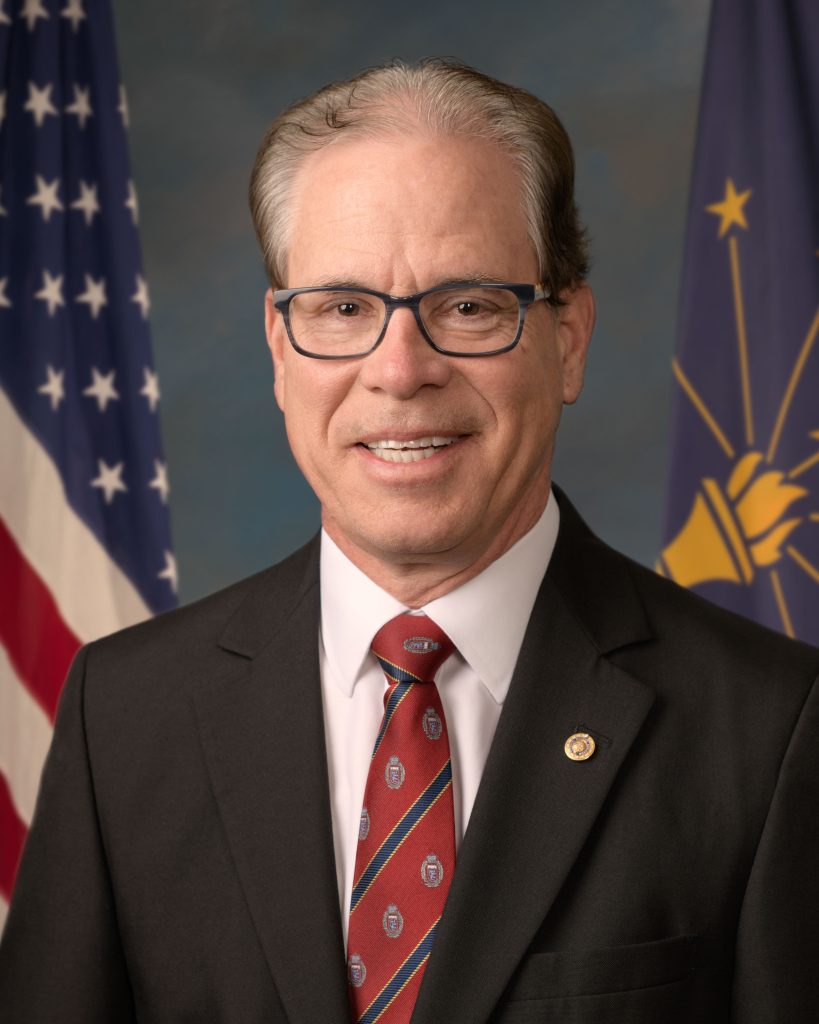The Home Equity Conversion Mortgage (HECM) program faces stability and viability challenges stemming from the 2022 collapse of a major industry lender and its extinguishment from the HECM-backed Securities (HMBS) program, which could warrant congressional scrutiny if these challenges are not properly addressed by the U.S. Department of Housing and Urban Development (HUD) and Ginnie Mae.
This is according to a letter obtained by RMD and submitted to Ginnie Mae President Alanna McCargo by Sen. Mike Braun (R-Ind.), the ranking minority member of the U.S. Senate Special Committee on Aging.
Braun submitted the letter to McCargo late last week. He seeks more information on what the government-owned company is doing to ensure the continued viability of the HECM and HMBS programs in serving U.S. seniors.
Concerns outlined
Sen. Braun sees the federal reverse mortgage program as an important one for serving the needs of U.S. seniors, according to the letter.
“Reverse mortgages can be a lifeline for older homeowners needing access to cash during retirement, and recent failures threaten the financial security for hundreds of thousands of seniors,” Braun’s letter read. “Mismanagement of this program could lead to the collapse of the reverse mortgage market that hurts both seniors and taxpayers.”

Recent concerns regarding the collapse of Reverse Mortgage Funding (RMF) and its subsequent extinguishment from the HMBS program prompted the senator to reach out. He also seeks information regarding the “proposed policy solutions to safeguard the reverse mortgage market in the future.”
Braun recounted the situations that ultimately led to the bankruptcy of RMF, its extinguishment from the HMBS program and Ginnie Mae’s seizure of the company’s portfolio, which he says grew Ginnie Mae’s balance sheet overnight “by 50 percent while the agency scrambled to service a large, seasoned reverse mortgage portfolio,” the letter read.
This led to an investigation by HUD’s Office of the Inspector General in late 2023. Braun added that “deeper Congressional scrutiny is also warranted” for HECM program issues stemming from these events.
Questions for Ginnie Mae
Braun seeks responses from Ginnie Mae to several questions regarding its stewardship of the HMBS program, particularly “to understand how seniors were impacted by this glaring failure,” he wrote.
Braun also requests “detailed insights into Ginnie Mae’s actions prior to and following the bankruptcy of RMF” and requests more information on “steps taken to improve troubled issuer management practices that threaten market stability.”
Braun also asks about other efforts Ginnie Mae is contemplating to “strengthen the secondary market for HECM loans,” the letter read. The senator is looking for information regarding the direct impacts to senior borrowers that the collapse of RMF may have had, whether or not there was a lapse in servicing HECM loans stemming from the incident, and whether or not there was a plan for handling distressed issuers prior to the collapse of the lender.
Previously, Ginnie Mae has said that the transition for borrowers was “seamless,” explaining that the acquisition of RMF assets “was accomplished without negatively impacting borrowers,” according to a January 2023 statement from McCargo.
Ginnie Mae has been open about the strain that the assumption of the RMF portfolio has placed on its resources.
In HUD’s recent congressional justifications for the president’s 2025 budget proposal, the company requested additional budget authority that would go to “support for any future defaults, oversight of the HMBS application process, performing operational impact assessments, engaging with business partners as needed, and supporting any new products that may come out of current program enhancement efforts,” according to the document.
The company would also seek additional staff to continue the goal of stabilizing the HMBS market, the document stated. Of the $24.6 million in additional funding requested, $4.4 million would go toward the hiring of 19 additional full-time equivalent employees to more adequately manage the HMBS portfolio.
‘HMBS 2.0,’ TCB litigation
In the letter, Braun also mentions the January announcement that Ginnie Mae was exploring the creation of a new reverse mortgage-backed security product, which would enable the acquisition of loans from an HMBS pool above the existing 98% maximum claim amount (MCA) requirement.
Braun has requested extensive information on the development of this product. This includes the analyses that suggested the need for a new product in this space; the associated goals, risks and expected outcomes that could stem from such a product; how it would impact loans already being serviced by FHA and Ginnie Mae; and the costs associated with establishing it.
Braun also focuses a line of questioning on the legal dispute currently playing out between Ginnie Mae and Texas Capital Bank (TCB). The bank alleges that the government-owned company “extinguished, in return for no consideration, TCB’s first priority lien on tens of millions of dollars in collateral” stemming from the HECM and HMBS programs.
Braun asks about the processes Ginnie Mae used to “locate a financier” for RMF; details on the steps and considerations made prior to extinguishing RMF from the HMBS program; and when Ginnie Mae became aware of the potential for RMF to fail.
Braun also asks McCargo if Ginnie Mae believes that their “actions in extinguishing mortgage servicing rights from Texas Capital, not as a matter of law but as a matter of reputation, has damaged Ginnie Mae’s dependability,” and what the implications would be if lenders decided to pull out of the HECM and HMBS programs due to caution stemming from the TCB dispute.
The senator requested answers to his questions by May 10, 2024.
When reached, a representative from HUD declined to comment on the contents of the letter. RMD also reached out to Democratic leaders in the Senate Committee on Aging but did not immediately receive a response.
Look for more from Sen. Braun’s inquiry into the HECM and HMBS programs on RMD soon.





